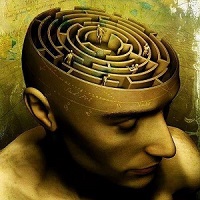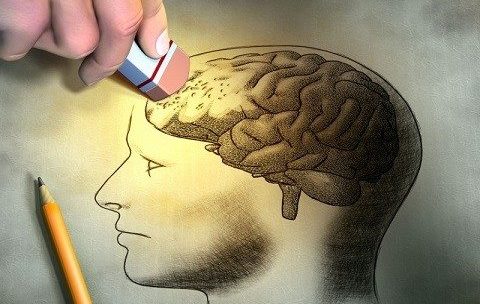ADD symptoms + What is ADD (Attention Deficit Disorder) anyway?
What is ADD

ADD stands for Attention Deficit Disorder and is a subtype of ADHD. ADD is now officially called ADHD - I called. This comes from English where the I stands for inattentive. In Dutch, we call it the predominantly inattentive type. To make the difference clearer, we still tend to refer to it colloquially as ADD because it more clearly indicates the absence of conspicuous hyperactivity. In this article, we will therefore stick to ADD symptoms.
The major difference with ADHD is that the symptoms of ADD do not involve clearly noticeable hyperactivity such as impulsivity, movement and talking a lot. In ADD, the busyness is mainly in the head and is therefore less noticeable to the environment. Known characteristics of ADD are being easily distracted, lack of concentration, forgetfulness, dreaminess, wandering during conversations, appearing withdrawn, overstimulation, a jumble of thoughts and being chaotic.
You can find more ADD symptoms in the list below. Further on, you can read very interesting information about a natural supplement that appears to support a lot of people with ADD and ADHD very well in terms of concentration, mood and inner turmoil. It usually makes people feel a lot calmer in their heads and less easily overstimulated. Definitely worth reading.
ADD symptoms at a glance
Below is a comprehensive list of the most common symptoms of ADD. You don't have to recognise yourself in all these characteristics to be diagnosed with ADD. If you have ADD yourself, the list below will be a breath of fresh air of recognition for you! ;)
Someone with ADD...
- finds it very difficult to concentrate
- wanders off while listening
- is very forgetful and chaotic
- constantly loses stuff
- is quickly bored of something
- has poor short-term memory
- is easily distracted
- appears absent
- Has a lot of trouble arriving on time
- is very busy in the head
- Jumps from heel to heel (may occur in tasks as well as in conversations)
- Has great difficulty with motivation (procrastination)
- brimming with ideas and plans but does not start or complete them
- regularly suffers from mood swings
- is often a perfectionist
- needs many moments of rest to recharge mentally (easily overexcited)
- can become completely absorbed in something when interested and have high concentration (hyperfocus)
- is dreamy and has great imagination
- usually has difficulty expressing feelings
- is usually also very sensitive (HSP, high sensitivity)
- Can often express himself creatively (dance, music, art etc.)
- often has a good sense of humour
- likes to stay in the background
- is mostly visually oriented
- Has difficulty finishing details or skips on details when interested
- Is prone to developing addiction
- has difficulty maintaining relationships and friendships
- often has a small social circle but is emotionally involved with others
- has difficulty responding quickly and appropriately to unexpected events due to delayed information processing
The above points are the most well-known symptoms of ADD. Not every ADD sufferer will recognise themselves in all the points. You certainly don't have to meet all the characteristics to be diagnosed either. But if you really have ADD, you will recognise yourself in the vast majority.
Positive characteristics of ADD
Besides the less fun sides of ADD, ADD also has some positive, strong characteristics that might even give you an advantage in certain areas. Further down the page, you will also find the cool video of a boy being followed in his daily life with ADD. The video shows both the negative and positive sides of ADD. So be sure to watch it.
Someone with ADD...
- has very high concentration when interested (also called hyperfocus)
- comes up with solutions that others thought were impossible
- brimming with brilliant plans and ideas
- often has a good sense of humour
- can think well out of the box and come up with brilliant solutions
- usually has great empathy
- sometimes comes very sharp or brilliant out of nowhere
- often has higher than average intelligence
- is usually creatively well-developed
- likes challenges and thrills
- is adventurous
- has good insight
- has good intuition
- seems to have 'a 6th sense'
- senses situations and people in a 'special' way
Again, not all characteristics have to apply to you. You don't have to recognise yourself in 100% of the list to be diagnosed with ADD.
ADD symptoms and the science
Click here for further information on ADD and science
ADD symptoms and medication
Read more about medication for ADD and its side effects
LTO3 appears to help many people with ADD / ADHD well
If you prefer not to take medication for your ADD symptoms, or if you think you have ADD and just want to see what a natural supplement can do for you, you might want to take a look at LTO3. This 100% natural supplement appears to give very good results for a lot of people with ADD and ADHD. In addition, it has no long-term side effects and the supplement can be used safely by anyone aged 3 and up. Also alongside your current medication.
More and more people with ADD and ADHD are switching to this natural remedy and many of them were even able to stop their ADHD / ADD medication altogether thanks to LTO3.
LTO3 has the following effects in many people:
- Better concentration
- Fewer thoughts and a calmer mind
- A better mood
- Less stress
- More motivation
- Less suffering from overstimulation
- Feeling confident
- Less inner turmoil
- Easier to fall asleep
The operation of LTO3 takes effect after about 30-40 minutes and works for 8-12 hours during the day. It takes a few days before the effect is optimal but sometimes it works very well right from the first day. In some cases, it may even take several weeks before the result is optimal.
Are you curious about LTO3 and want to know more about it? Then check out the links below:
> Everything you want to know about LTO3 + Questions and Answers
> Read all the LTO3 user experiences I was sent
ADD symptoms in everyday life
Watch the funny video below about a boy followed in his daily life with ADD. You see what he encounters due to his symptoms of ADD, but besides the less pleasant sides, the positive characteristics of ADD are also on full display. Definitely a must watch.
Do I have ADD and how do you get diagnosed with ADD?
If, based on the above ADD symptoms, you think you have ADD yourself, you can get tested at a mental health institution. Using questionnaires, they will look at how many characteristics apply to you and your behaviour as a child. For this, a psychologist will usually also ask to talk to your parents and often request old school reports from primary school. Once you have been diagnosed with ADD, in many cases you will start experimenting with medication and have conversations with a psychologist.
For a dose of positivity around ADD and ADHD, check out check out this article with 10 great benefits of ADD and ADHD. Looking for information on ADHD or high sensitivity? Then follow the links below:
> Learn more about ADHD and the characteristics of ADHD
> Learn more about HSP and characteristics of HSP
Do you have any additions of your own to the list of symptoms of ADD or the list of positives about ADD? Maybe another comment on this article? Then be sure to let us hear from you in the comments below....








Hi Jochem
First, thank you for your comprehensive information on ADD,
I am 45 and a few years back it was concluded that I have ADD.
Apparently all my life and so now many puzzle pieces are falling into place. A few years ago, I ran into burnout due to a broken marriage and, because of recovery, had to deal with PsyQ, which eventually diagnosed me with ADD.
Now burnout is an overload on the brain, it often does not come to rest due to lack of sleep.
Now I am curious to know if you can establish a relationship between ADD and Burnout and whether, on average, more people who have ADD also encounter burnout.
Hi Michel,
No thanks.
That relationship is definitely there. People with ADD often feel different. This can make it difficult to find your place in this world. This creates all sorts of emotions that make you burn out. 70% of people diagnosed with AD(H)D sooner or later have meanwhile also developed another 'disorder' including, for example, burnout. https://www.addkenmerken.net/psychische-klachten-add-adhd/
But depression is also common, anxiety disorder, personality problems. Ultimately, they are all terms for an expression of suffering stuck inside yourself. When you really start to heal from within, these symptoms resolve over time. This can be a long road, but the potential for every AD(H)D'er is there to stand in his power.
Hi Jochem,
When I read your story, I had a lot of recognition. I am also hsp and a Sensation seeker. A traumatic experience pp when I was 17 gave me CFS. Five years ago, I got psychological help for this. Now I no longer have CFS (don't confuse this with ME). I also sometimes thought I had ADD but according to the psychologist you must have had symptoms in childhood. Anyway, I recognise a lot in your story. I see my hsp as a strength and use this positively when I coach people.
Hi Anouk,
How nice that you have fully recovered from CFS and that you have your characteristics of HSP positive can be in it as a coach.
People will be able to draw a lot of strength from that.
Indeed, for an ADD diagnosis, you must have had symptoms of ADD since childhood.
All the best.
My son was diagnosed with ADD , now I'm doing some searching on the internet and reading the symptoms seems to me that I have it too ADD . There are huge similarities , should I go to the doctor with that now or just what ? Or do I test that jar of LTO 3 ?
Greetings Cynthia
Hi Cynthia,
If ADD symptoms are really getting you stuck in your life, you might want to get tested at a mental health institution. For example PsyQ Don't think a diagnosis is going to get you free of ADD. However, they can offer you counselling help to better cope with your ADD and possibly prescribe medication such as Ritalin, dexamphetamine or Concerta. There are many other different medications that can be considered for ADD or ADHD and sometimes it can be quite a search for medication that works well for you. After all, Ritalin certainly does not work for every AD(H)D sufferer.
You can always try LTO3 to see if it helps you enough. You might then say that you feel so much better and experience fewer symptoms that you don't think a diagnosis is necessary. That choice is up to you.
Best of luck.
Greetings Jochem
I have ADD myself and know some friends with ADD in my area. Now I notice that we have one characteristic in common, which is not listed in the list of symptoms.
I have a strong tendency to overthink a situation I have found myself in and draw conclusions that often do not match reality. I then stick to that and am hard to shake off. I often think I know what someone else is thinking and this then reinforces my wrongly established conclusion. As a result, it quickly tends towards conspiracy theory thinking.
Who recognises this? Or does the above relate to any of the other characteristics?
Hi Eric,
What you outline I see in quite a lot of people, but certainly also in non-AD(H)D'ers. Look conspiracies just exist, people always act as if conspiracy theories are for geeks but of course they are not. As long as there are people living on earth, conspiracies will be forged. Of course, it's helpful if you don't get too caught up in them and don't start overthinking every situation. AD(H)Ds can think a lot, especially if they don't have enough distractions. If there is too much 'thinking time' then it can definitely result in going overthinking and overanalysing situations. Perhaps when you are aware of this, it helps to take a step back and seek distractions. Try to take situations more light-heartedly.
Hi Eric,
I myself have recently been diagnosed with add and I recognise myself completely in this, with me it also strikes me as unrealistic, which often makes arguments run bigger than they really mean. I have noticed this several times in myself and there seems to be 1 truth. When I read your comment you described the words exactly as I experience it!!!
Gr
Bye Jochem,
Based on what scientific research do you describe these symptoms? This seems like a very long list to me and I'm curious to know what research(s) this comes from.
Thanks in advance!
Hi Tessy,
The symptoms of ADD are described in the DSM-5. The best-known symptoms are a busy mind, dreaminess, hypersensitivity to external stimuli, poor overview of time which also results in frequent lateness, short concentration (unless there is high interest) and poor short-term memory. These symptoms result in all sorts of features you see in the list. They are all consequences of the main symptoms. When you take a test at an institution that will test you for AD(H)D, you will also see all these symptoms come up in the questions. Besides, I speak from my own experience and know many AD(H)D'ers in my environment. As an AD(H)D sufferer, you will find enormous recognition in the list. Most react as if they see themselves described. This does not mean that you need to recognise yourself 100% in all the characteristics and it is of course not the case that someone without AD(H)D does not recognise any of these characteristics in themselves.
Yes, me too. Think it's a good story though and welcome it. But source citation is in order here.
Greetings, Gert
Hello,
Please send me the newsletter
Hi Diana,
Thank you for your interest.
You can sign up for the newsletter at various places on the website ;)
For example, at the bottom of every article. When you posted a comment, you could check a box to sign up directly for the newsletter.
You can also this link directly use. Nice and easy.
Greetings Jochem.
Hey Jochem,
My daughter and I have hsp. For myself, the characteristics for ADD also come through strongly. Especially that inner turmoil, mood swings.... Sometimes I wish I had a button to stop the turmoil in my head... We live in Belgium. Is LTO3 also available here? Freely available? Or what natural remedy can I get here?
Regards, Anja
Hi Anja,
Such a button would really be a godsend lol.
Unfortunately, we have to do it ourselves but, for instance, meditation could help you a lot. Also take enough moments of rest. Is difficult for me too.
When I start something, I often can't stop and before I know it, I'm in hyperfocus and keep going. Hours and hours and I forget everything. Just those moments of rest are sometimes important to get back to earth. Also occasionally just simply take a deep breath. Also try to keep a positive mindset. Negative thoughts always get me completely off track and then I can worry about something for days. I try to turn that around in time.
Lto3 is good to try as a support. Many people benefit from this.
You can just get it in Belgium. You can get the original LTO3 here order at SmartVital.
Best of luck.
Let us know again what the LTO3 does for you :)
Greetings,
Jochem
The video gives a good picture of how someone with ADD feels. Thanks for this explanation with film, fun and informative. Is LTO3 covered by insurance? Please send me more info and if so, which insurance company. My son uses concerta but it is quite expensive and is not reimbursed. Can you tell me which insurance company does reimburse this?
Hi Carla, PNOZorg reimburses LTO3 in the supplementary package. Further information can be found on this page under question 12.
Greetings, Jochem.
Hello,
Happy to receive the newsletter.
Do you have any titles of books on add that I could read to better understand my 11-year-old son with add, among other things.
Thanks in advance.
Hi Bas,
You can get your subscribe to the newsletter via this link.
Take a look at the book 'Living with ADD' by Sterre Hunvie. Her son and partner both have ADD. That's probably a book you're looking for. If you follow the link, you will also see a video of Sterre talking about her book and home situation.